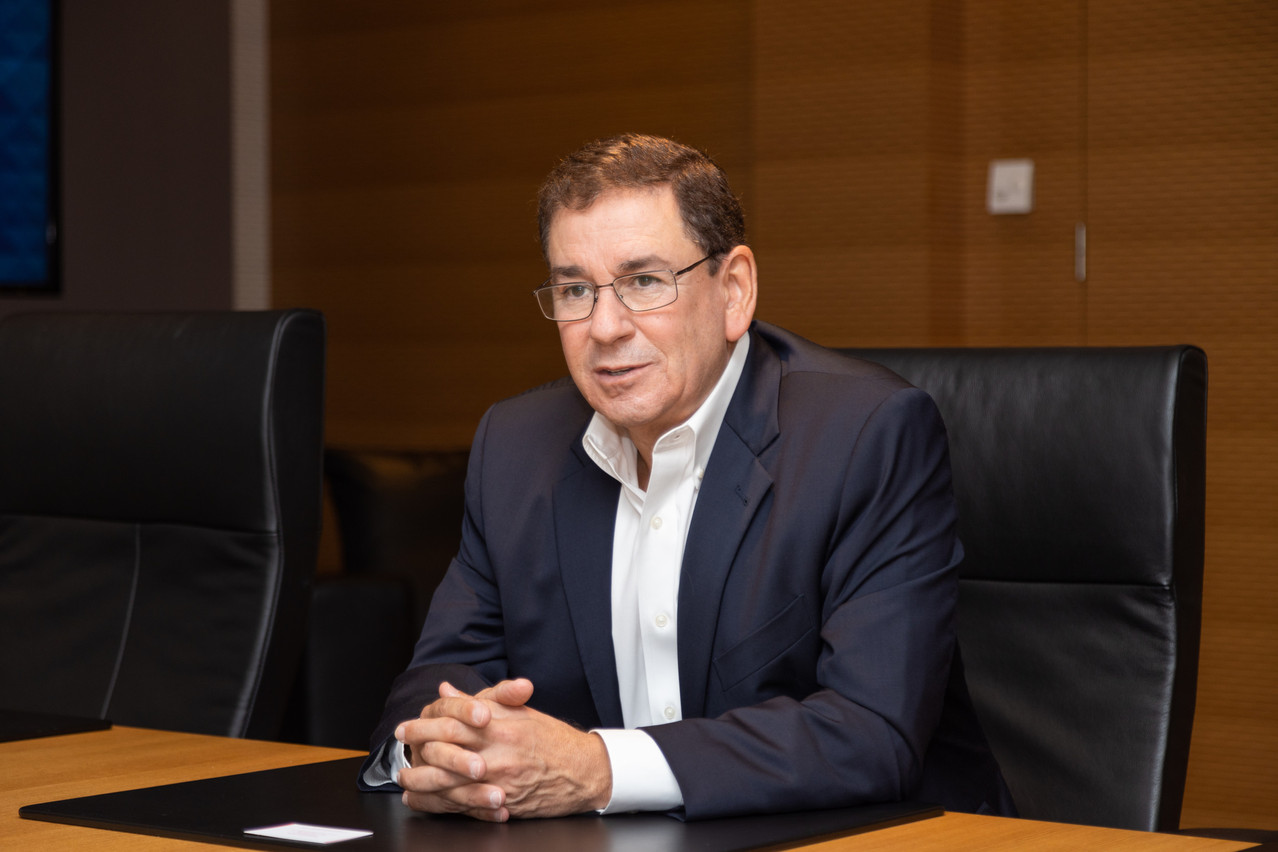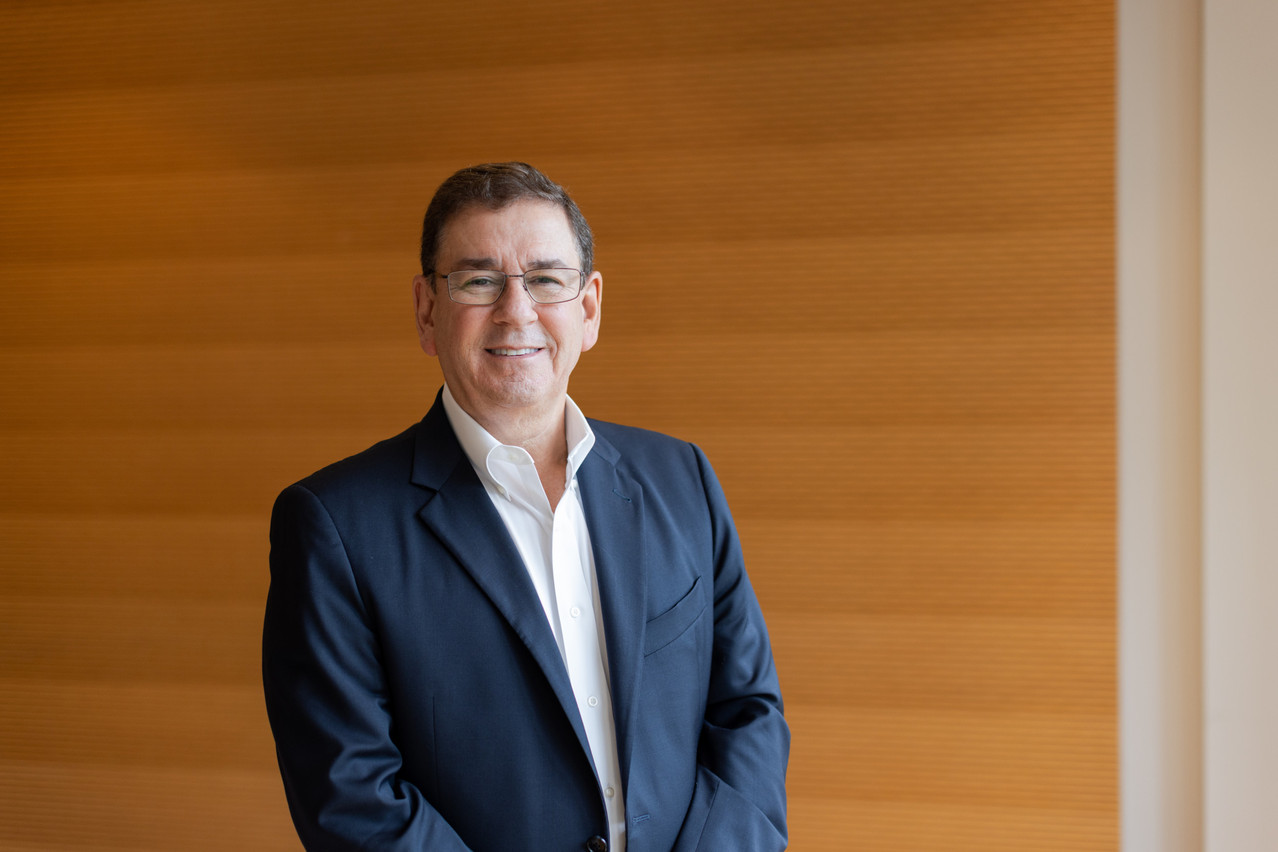It was the first time the Intelsat exec visited the company’s Kirchberg premises, on the heels of his participation in the World Satellite Business Week, which is taking place in Paris on 12-16 September. The event brings together over 1,200 professionals from over 450 public and private organisations.
“I learned a lot, and there was a lot of business conducted and some new strategies were put in place as a result,” he said of the event, without going into specifics. “I think the competition is no doubt increasing, which I see as a very good thing for innovation and a very good thing for end customers.”
Wajsgras said it was his first conference in the industry, and one thing he’s realised is that the “pace of activity in this industry…is happening at a very fast clip right now, on multiple fronts, capabilities, technologies, new partnerships being formed.”
A possible merger?
In January, Intelsat as a private company, following the December that a US bankruptcy court had approved its reorganisation plan to reduce the company’s debt from approximately $16bn to $7bn.
Just this August, about a “potential combination as both companies seek to ensure they are not left isolated in a fast-consolidating industry that is battling challengers such as Elon Musk.”
When asked about a possible merger, Wajsgras said he’s “read the same rumours” but “can’t comment on that one way or the other. What I’d say is we have a strategy to invest in our company that I think will definitely put us in the leadership position clearly over the next few years.”
But, in addition to its investment roadmap and its multi-orbit strategy, “We’re clearly going to be looking at M&A opportunities, and those will be driven by where we can more efficiently or effectively fill technology gaps by buying companeis or what I term channel gaps, new customers.”
We have a strategy to invest in our company that I think will definitely put us in the leadership position over the next few years.
When pressed to share details on the current financial health of the company, Wajsgras fairly stated “we’re not compelled to give out too much financial information [and] I’d rather not give out specific backlog” information, but he is optimistic that the plan currently in effect, which also aims to boost innovation and enhance partnerships, will pay off. He attributes this in part to “the combination of going through the Chapter 11 reorganisation, the cash flow that’s being generated and the C-band [auction] proceeds, [which] will put us in a position that is the envy of most companies.”
He added: “Our balance sheet is exceptionally strong… our leverage ratio would be less than two in about 12 to 18 months.”
Wajsgras’ background makes him well-equipped to very possibly pull this off. Prior to joining Intelsat, he’d served as president of the intelligence, information and services business of the former Raytheon Company (now a part of Raytheon Technologies Corporation, a massive US player in defence and aerospace). He also served as executive VP and CFO at Lear Corporation, among other roles. In 2012, he was named one of the 25 best CFO’s among the larger S&P 500 companies by the Wall Street Journal.

Wajsgras estimates that Intelsat’s leverage ratio will be “less than two in about 12 to 18 months.” Romain Gamba
One of the key growing areas he sees is in the government vertical in a variety of regions--the US, Europe, Pacific Rim and others--and he emphasises demand is there. “The [governments’] objectives are clear”, in terms of military and intelligence communities. “They have to have secure and seamless communications that work every time, everywhere. And Intelsat, in my view, is the world leader in being able to deliver that type of service today, and going forward we’ll be expanding our service offerings [and] be the provider of end-to-end solutions for networks on both a tactical and strategic level for militaries and governments around the world.”
Wajsgras also says Intelsat is “continuing to expand our operations” in the grand duchy, although didn’t give precise figures when asked. There are currently around 50 employees in Luxembourg.
What weighs most heavily
Wajsgras’ experience in defence and intelligence also runs deep. In 2019, Washington Exec placed him on its 25 top execs list and named him intelligence industry executive of the year.
On one hand, he says the alliance between many European countries and the US is strong, given similar democratic valus, philosophies, etc. But what weighs on him broadly are the real cyber threats in today’s age. “There are bad actors around the world… no one’s being naive today… the western world understands where things could possibly go if we don’t proactively defend ourselves.”

